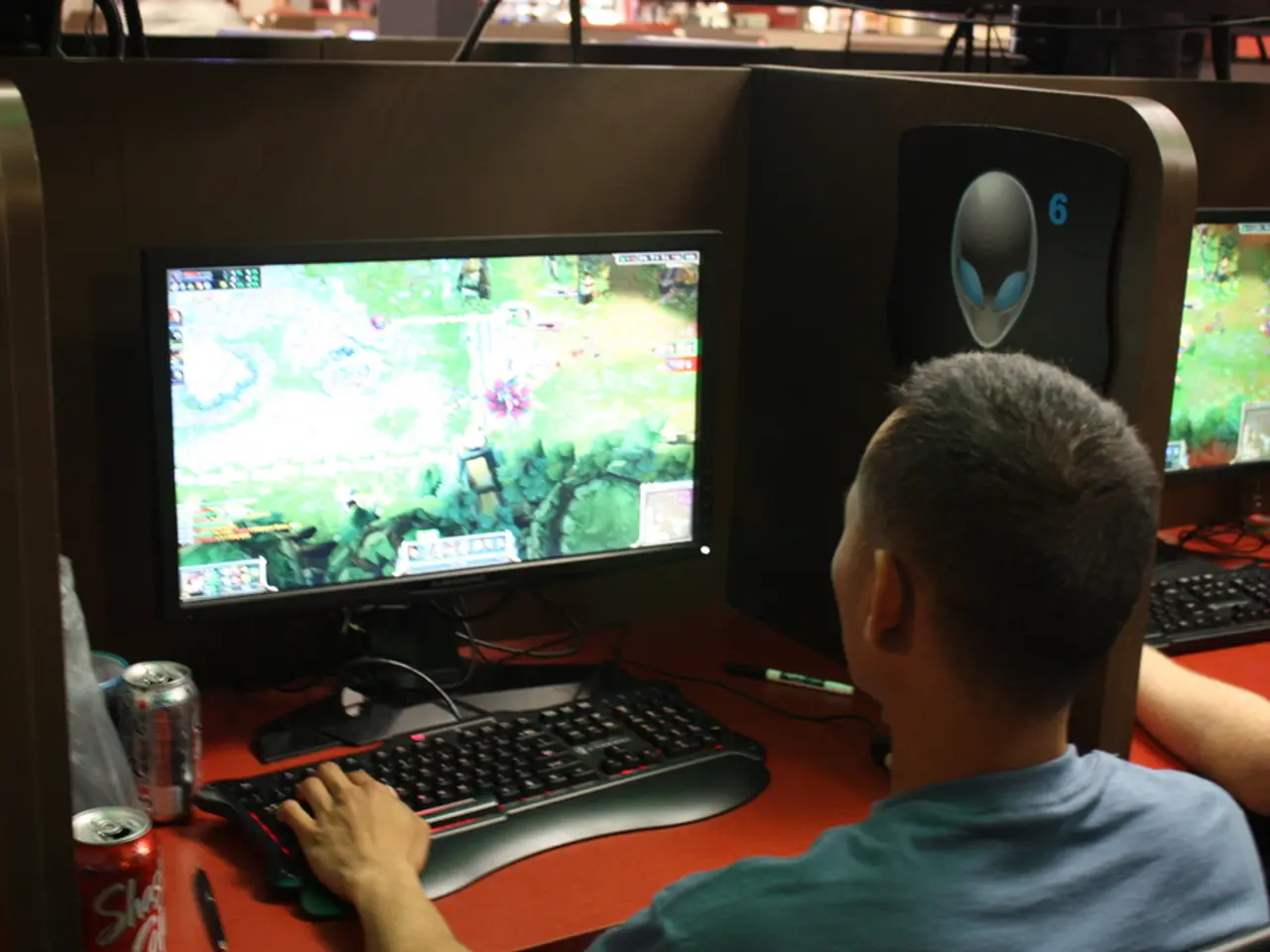AI Transforming Gaming, Steering Industry into a Fresh Era
In the rapidly evolving world of entertainment, Artificial Intelligence (AI) is making a significant impact on the gaming industry. According to Statista, by 2027, a substantial majority of residents in the US and UK will be classified as gamers, with 64% and 70% respectively [1]. This growing audience is driving the industry's expansion, fuelled by factors such as the rising appetite for enthralling adventures, legalization of online betting, and the popularity of fantasy sports apps.
AI is reshaping the gaming landscape in various ways. One of the key areas is personalization and adaptive gameplay. By analysing players' preferences and behaviours, AI creates hyper-personalized gaming experiences, enhancing engagement and retention [1][2]. This personalization extends to non-player characters (NPCs), who are now capable of behaving intelligently and realistically, simulating human-like decisions and interactions, thanks to AI [3].
Procedural content generation is another area where AI is making strides. By automating the creation of game environments, levels, and assets, AI reduces development time and costs, while creating rich content [1][3]. AI is also powering near real-time translation and content localization, breaking language barriers and expanding global reach [1][2].
Visual enhancements and upscaling are another area where AI is making a difference. Techniques like NVIDIA’s DLSS improve game graphics by upscaling low-resolution images to higher resolution in real-time, enhancing visual quality without demanding higher hardware specifications [3].
AI is also playing a crucial role in enabling richer, smarter, and more inclusive player experiences. For instance, AI-driven analytics tools help developers interpret player data, predict trends, and optimize game features. AI can also generate infinite, ever-changing content for a unique gaming experience [1].
AI is not just improving the gaming experience for players, but also streamlining operations. For example, in cloud-based gaming, AI helps cloud servers perform better, ensuring that outdated hardware can deliver a seamless gaming experience [1].
The future of AI in gaming is expected to offer more interactivity, high-level graphics and visuals, infinite combinations of stories and landscapes, more realistic NPCs, and personalized experiences [1]. AI is also expected to open new possibilities for creators to monetize their gaming platforms [1]. However, discussions around AI ethics, data privacy, and businesses are critical, requiring organizations to implement responsible AI [1].
Online gaming saw a surge in 2020 due to the COVID-19 pandemic, with over 2.5 billion active gamers worldwide as of now [1]. Blockchain and NFTs are also enabling in-game economies, allowing players to trade in digital tokens, creating a more inclusive and transparent ecosystem in the world of online gaming [1].
Despite AI's rise, human creativity remains crucial in driving innovative game development, with AI serving mainly as a tool to augment human-driven design and creative iterations [4]. The global AI in gaming market is rapidly growing, predicted to reach around $7-8 billion by late 2020s, reflecting its expanding strategic importance across development, marketing, esports, and live operations [1][2].
In conclusion, AI is transforming gaming by making development faster and more efficient while enabling richer, smarter, and more inclusive player experiences in multiple key areas. From personalization and adaptive gameplay to procedural content generation, localization, visual enhancements, AI-driven analytics, and monetization, AI is propelling the gaming industry into a new era of innovation, experience, and limitless possibilities.
[1] https://www.statista.com/ [2] https://www.forbes.com/ [3] https://www.nvidia.com/ [4] https://www.gamasutra.com/
- Machine learning, driven by AI, is revolutionizing the gaming industry, enhancing user engagement and retention through hyper-personalized experiences.
- In addition to personalization, AI is streamlining operations in the gaming industry, especially in cloud-based gaming, where AI helps cloud servers deliver seamless experiences on outdated hardware.
- AI is also powering procedural content generation, automating the creation of game environments, levels, and assets, while reducing development time and costs.
- Artificial Intelligence is breaking language barriers in gaming, enabling near real-time translation and content localization for a wider global reach.
- The future of AI in gaming promises more interactive, high-quality graphics, infinite combinations of stories and landscapes, and increasingly realistic non-player characters.
- AI is opening new possibilities for creators to monetize their gaming platforms, while discussions about AI ethics, data privacy, and responsible AI practices are crucial for the industry's growth.
Furthermore, the growing audience in the gaming industry is driving its expansion, with betting regulations, fantasy sports apps, and a rising appetite for immersive adventures contributing to this trend. The impact of AI extends to other sectors like fashion-and-beauty, food-and-drink, home-and-garden, travel, entertainment, sports, gadgets, data-and-cloud-computing, and lifestyle, where AI is being leveraged to provide more personalized, efficient, and intelligent experiences.






